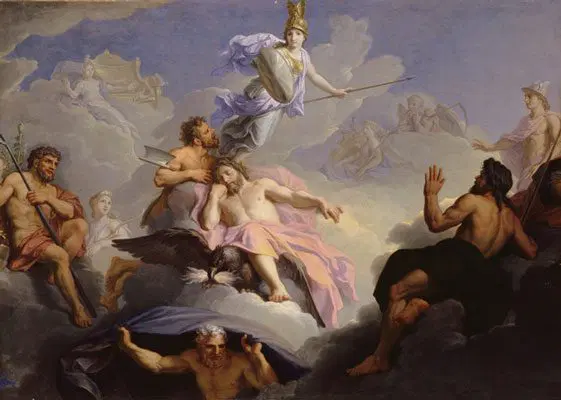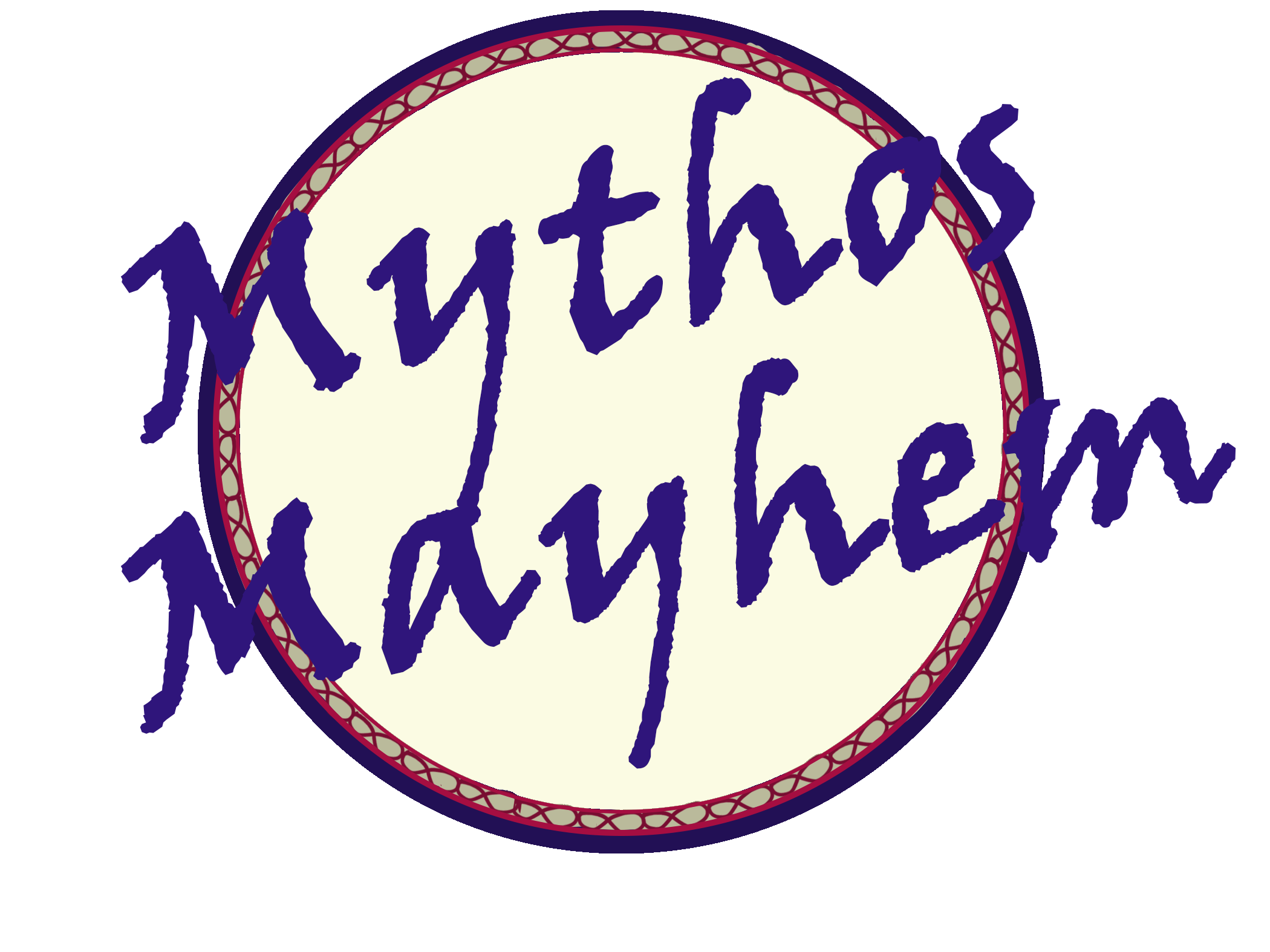Athena is the goddess of wisdom, strategic warfare, and crafts. She is one of the most well-known goddesses in all of Greek Mythology. She is also the patron of the city of Athens, where many temples and statues of her still remain to this day.
Stories
Birth
Athena was the daughter of Zeus and Metis. Metis was Zeus’s first wife before Hera, being the one to help him free his siblings from the stomach of their father, Kronos. After the fall of the Titans, Zeus was told that Metis was prophesied to have a son after Athena who would overthrow him. Worried about losing his throne, Zeus used his power to absorb the still-pregnant Metis into himself. Afterwards, Zeus married Hera. However, one day, Athena burst out of the thunder god’s head, fully armored and a grown adult.

A painting depicting Athena’s birth.
The Start of the Trojan War
The Trojan War famously started from a simple competition. Athena, Hera, and Aphrodite handed Paris, the prince of Troy, a golden apple. He was tasked with giving the apple to the goddess he found most beautiful. Each of them offered a prize. Athena offered great wisdom in war, Hera offered to make him king of Asia, and Aphrodite offered Helen of Troy. Paris chose Aphrodite. This event would become the catalyst for the war.
Assisting Heroes
Athena is well known for being a guide to famous heroes. Two of the most well-known heroes were Heracles and Odysseus. With Heracles, she assisted him in one of his twelve labors by providing him with weapons, assisting him in killing the Hydra, and guiding him through the underworld.
With Odysseus, she assisted both him and his son, Telemachus. She guided Telemachus throughout the land in order for him to figure out what happened to his father while providing wisdom and advice to Odysseus at sea. When he eventually returned to his kingdom, Ithaca, she disguised him as a beggar so he could sneak into the palace and kill the men who had taken over his castle to win the hand of his wife, Penelope.
Athena and Telemachus, as depicted in “Epic: The Musical“.
Illustration by Giulia Toneatto.

Athena vs Arachne
Arachne was a beautiful mortal woman and a skilled weaver. One day, she claimed that she was so good that her skills could outdo Athena’s. Overhearing the comment from Olympus, Athena came up with an idea to teach her a lesson. Disguising herself as an old woman, she approached Arachne. Once she revealed herself, she offered her a challenge to see who was the better weaver. The girl quickly accepted, and the two got to work. Athena created a piece depicting her defeat of Poseidon for control of Athens.
In contrast, Arachne’s piece depicted several scenarios where gods exploited women, with said gods often being in the form of animals. Athena quickly destroyed Arachne’s work and repeatedly hit her in the head. Crushed by the rejection, Arachne attempts to take her own life, but Athena takes pity on her and turns her into a spider.
Powers and Abilities
Enhanced Wisdom: As the goddess of wisdom, Athena is extremely wise with a mastery of warfare and strategy.
Weaving: Athena is said to be one of the best weavers of all time, leading to her being associated with craftsmanship.
Shapeshifting and Immortality: As a goddess, Athena is able to shapeshift into anything she wants. She is also immortal, like all other gods.
Fun Facts
The Olive Tree: Athena is often associated with an olive tree. This is because when she and Poseidon were trying to convince the people of Athens to let them be the patron of the city, Athena offered them an olive tree! Since then, she’s often associated with the tree.
Other Associations: Athena is associated with many symbols, such as owls, her helmet and armor, Medusa’s head, her spear, and the chariot
Sources
“12 Greek Gods and Goddesses.” Edited by Encyclopedia Britannica, Encyclopædia Britannica, Encyclopædia Britannica, inc., 27 May 1999, www.britannica.com/list/12-greek-gods-and-goddesses.
“Athena – Mythopedia.” Mythopedia, 2022, mythopedia.com/topics/athena/. Accessed 21 Aug. 2025.
Atsma, Aaron. “ATHENA – Greek Goddess of Wisdom, War & Crafts.” Theoi Greek Mythology, 2017, www.theoi.com/Olympios/Athena.html.
